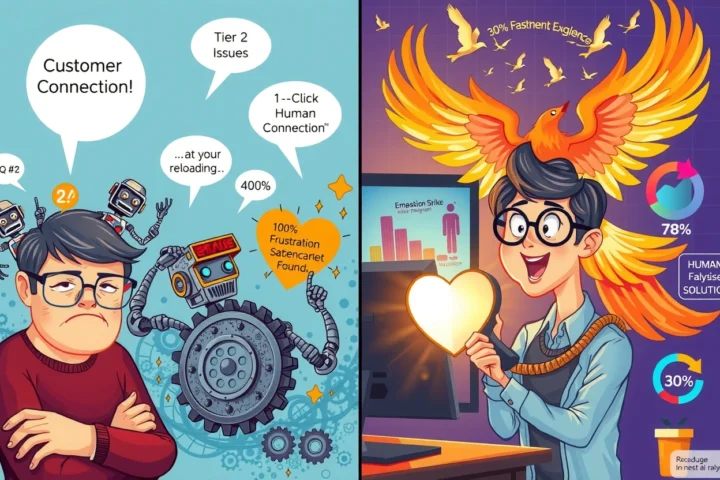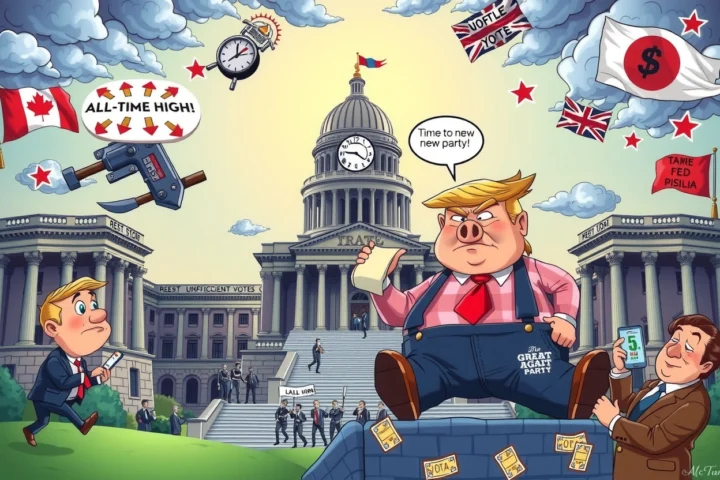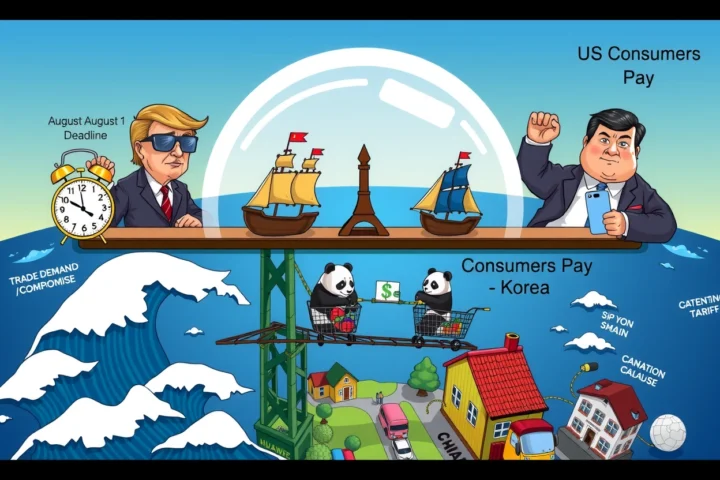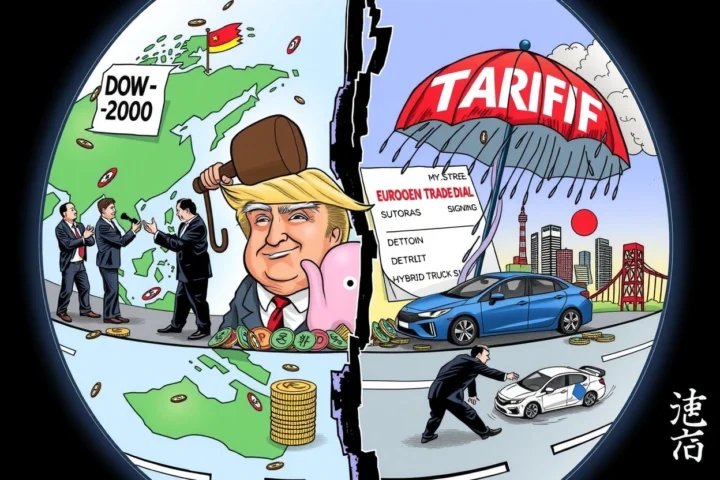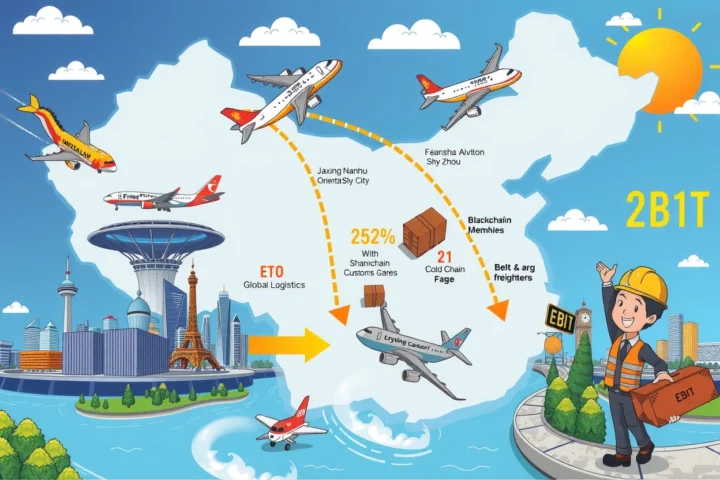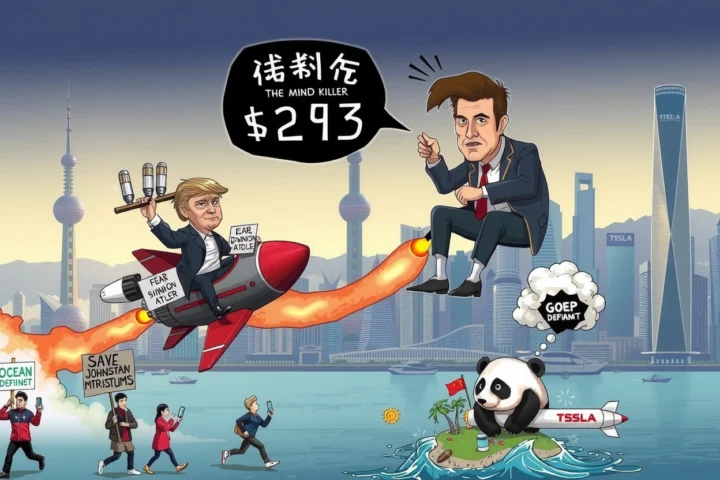– Boston’s biotech hub faces collapsing IPOs and distressed company sales due to Trump-era policy uncertainty
– Major players like Moderna and Bluebird Bio see valuations plummet 30-90% amid regulatory chaos
– Harvard University warns China leads in clinical trials, patents, and talent to overtake US biotech dominance
– Chinese firms approach profitability milestones with 24/7 development pace and streamlined approvals
– Global pharmaceutical giants shift focus toward China’s thriving biotech ecosystem
The lightning bolt of policy uncertainty has struck America’s premier biotech corridor near Boston, paralyzing what was once the world’s most vibrant pharmaceutical innovation hub. Now known more for fire sales than breakthroughs, companies like Moderna and Bluebird Bio face valuation drops exceeding 30% while venture capital flees unpredictable regulations. Amidst this crisis, Harvard University researchers identify China as the imminent challenger to US biotechnology leadership – armed with the world’s largest scientific talent pool, streamlined drug approvals surpassing FDA bureaucracy, and explosive growth in clinical trials. This biotechnology leadership shift signals a fundamental restructuring of global medical innovation power centers.
Policy Paralysis Grips America’s Pharmaceutical Capital
Boston’s biotech ecosystem, home to 18% of all US life science startups, faces existential threats from regulatory instability. Trump-era policies created a domino effect that continues destabilizing the sector.
Regulatory Whiplash Derails Innovation
In 2022 alone, FDA leadership churn caused repeated disruptions – most dramatically when vaccine chief Peter Marks (Peter Marks) was abruptly terminated mid-drug review. Verve Therapeutics explicitly cited Marks’ departure when explaining their rushed $1.3 billion sale to Eli Lilly, noting regulatory uncertainty made independent operation impossible. This biotechnology leadership uncertainty extends to pricing pressures too, with the Trump administration demanding Medicare slash reimbursements after approving new treatments.
IPO Winter Freezes Venture Capital
– Biotech IPOs plunged to 2012-era lows with only 3 listings in 2023’s first half (Renaissance Capital)
– Venture funding contracted 38% year-over-year as investors shifted to late-stage Chinese counterparts
– Bluebird Bio sold for under $100 million despite $4 billion peak valuation
Corporate Casualties and Strategic Retreats
The policy storm forced dramatic survival measures across Boston’s biotech landscape.
Distress Signals from Industry Leaders
Moderna CEO Stefan Bancel (Stefan Bancel) publicly condemned the “irreparable damage” of federal uncertainty as his firm’s stock sank 30% while implementing layoffs. Similarly, Vor Biopharma transferred 23% ownership to China’s RemeGen to survive after massive cost-cutting. Eleven Massachusetts biotech firms implemented layoffs exceeding 15% workforce reduction in 2023 alone.
Academic Engine Stalling
Harvard’s research freeze particularly threatens its startup pipeline like Beam Therapeutics, whose CEO John Evans (John Evans) expressed “profound concern” over funding stability. With academia fueling 43% of Boston-area drug discoveries, the freeze compromises America’s biotech intellectual infrastructure.
China’s Biotech Ascent: The Harvard Diagnosis
Harvard’s Belfer Center report details China’s systematic advantages positioning it to claim biotechnology leadership.
Structural Superiority in Development
China now hosts more active clinical trials than the US and files triple the life science patents annually. Their drug approval timelines average 12 months versus FDA’s 22-month benchmark. “Midnight lights glow continuously in Shanghai labs,” noted one US researcher. “That relentless drive explains their phase 3 trial volume exceeding America’s since 2021.”
Talent Tsunami and Investment Surge
– China graduates twice as many STEM PhDs annually versus US
– Government biotech funding increased 62% since 2020
– Purpose-built facilities like Shanghai’s Medicine Valley house 700 companies
The Profitability Horizon: China’s Commercial Edge
Goldman Sachs analysts project China’s top 20 biotechs reach breakeven by 2026 – four years ahead of comparable US timelines. This biotechnology leadership milestone reflects systematic advantages:
Operational Efficiency Model
Chinese manufacturers achieve cost-per-dose reductions averaging 47% versus Western counterparts through integrated research-to-manufacturing ecosystems. Strategic clustering in hubs like Suzhou BioBAY eliminates supply chain delays plaguing US facilities.
Dual-Market Strategy
Unlike US companies targeting premium pricing, Chinese innovators simultaneously deploy therapies in domestic markets and Global South countries. BeiGene’s oncology drugs exemplify this twin revenue stream approach. Achieving profitability requires treating affordability not as obstacle but strategic imperative.
Global Biotech Power Shift Accelerating
The unrelenting innovation pace suggests biotechnology leadership transition will complete within five years. Companies like RemeGen already acquire coveted US assets while capturing director seats. More troublingly, CNS drug trials now concentrate in China at 3:1 ratio versus US equivalent studies.
Multinationals Vote with Headquarters
Novartis and AstraZeneca relocated Asian HQs to Shanghai while Pfizer established stand-alone China divisions. This biotechnology leadership positioning gives direct market advantages while ensuring priority access to innovations.
Intellectual Property Migration
An accelerating licensing trend sees US firms with compound libraries partner with Chinese developers instead of local startups – effectively exporting breakthroughs.
This unfolding biotechnology leadership shift demands urgent strategic recalibration. Industry stakeholders must cultivate regulatory advocacy while establishing Chinese partnerships. Rather than resisting China’s ascent, global health requires harnessing both ecosystems’ strengths. Patients deserve nothing less than collaborative science transcending geopolitical divides – and innovation unconstrained by artificial borders.





